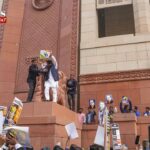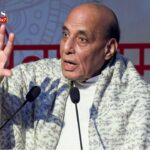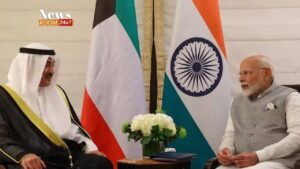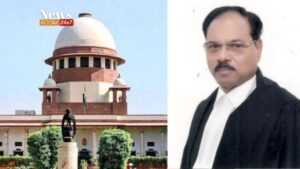Why another country is claiming India’s first Olympic medal, won 125 years ago
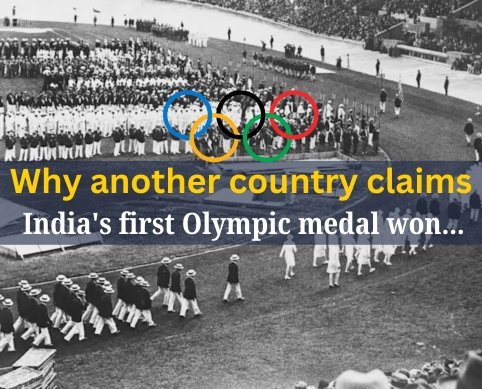
On a chilly winter evening in London in 1906, the city’s elite gathered for an extravagant dinner party. Among the guests was a young man in his late twenties, excitedly sharing tales of the grandeur he had experienced at the Delhi Durbar of 1903.
The man from Calcutta described “the great Indian spectacle with its 500 bejeweled and gold-incrusted elephants, its panoplied hosts, and its array of princes of unimagined wealth.”.
After the tale, he was approached by renowned actor and theater owner Sir Charles Wyndham. Sir Charles thought the young guy could be a good actor if he tried. He spoke with the quality of an actor.
Norman Pritchard, a young man, consented to Sir Charles request and went on to pursue an acting career, appearing in several silent films in Hollywood throughout the 1920s. However, his acting career wasn’t his only accomplishment.
“Three years ago, Calcutta-born Norman Pritchard won two silver medals at the 1900 Paris Summer Olympics. He secured silver in both the 200-meter and the 200-meter hurdles.
He wasn’t only India’s first Olympic medalist; he was also the first from Asia.
NORMAN PRITCHARD, A DISPUTED LEGACY
As Indian athletes compete in the 2024 Summer Olympics in Paris to bring home medals and honor the country, Norman Pritchard is once again being discussed in India about his accomplishments. Some claim him to be their own, yet others identify him as English.
Nonetheless, there has been debate over his legacy, with some in Britain doubting his nationality.
“Norman Pritchard is a ‘controversial’ Olympian in that he is claimed by both Britain and India as having competed for them at the 1900 Olympics,” according to the International Olympic Committee (IOC).
Consequently, 125 years after India’s first Olympic medal was won, the medal remains clouded in dispute.
This is true even though Norman Pritchard is listed as an Indian by the International Olympic Committee (IOC) and is referred to as “the Indian champion” by the UK-based The Field magazine.
Against this backdrop, let’s explore the history of Norman Pritchard’s first two Olympic medals and uncover the mystery surrounding the person who made them possible.
NORMAN PRITCHARD AND HIS TIME IN INDIA
A baptismal certificate dated 1883 states that Pritchard was born in June 1875 in Calcutta (now Kolkata) to parents George Peterson and Helen Maynard Pritchard. The family lived in Alipore, a neighborhood outside of Calcutta.
Norman graduated from Calcutta’s St. Xavier’s College, having attended the Jesuit-run St. Xavier’s School on Park Street. The Calcutta school alumni magazine, which named Pritchard as having attended in 1891, helped to corroborate this fact decades later.
According to Gulu, Norman’s medals were eligible to be included in the Indian tally because he continued to work in Calcutta until 1905.
In 1917, The New York Times published an article stating that Norman had cultivated “jute, tea, and indigo on a 5000-acre plantation in Assam” before moving. He had resided there since the age of seventeen.”
In addition to being a gifted athlete, Norman Pritchard was also a superb rugby and soccer player in Calcutta. In the Indian Football Association (IFA), he was actively involved as an administrator as well as a player.
NORMAN PRITCHARD’S RECORD IN INDIA AS AN ATHLETE
According to a 2018 article by former Bengal cricket captain Raju Mukherji, Pritchard’s athletic skill was demonstrated by his record of seven straight 100-yard sprint titles in the Bengal Presidency Athletic Meet. This record still holds.
On February 18, 1899, he accomplished a spectacular achievement by matching the world record of 9.8 seconds for a 100-yard sprint on grass in Calcutta.
Usain Bolt’s time of 9.58 seconds for the 100-meter sprint is still the world record as of August 2024.
Norman was also awarded “a bronze statue for the best physique of athletes from among all nations at Paris” in 1900, according to British sports tabloid The Sun.
PODIUM TO STAGE TO SCREEN, NORMAN PRITCHARD BECOMES NORMAN TREVOR
Norman began a career in theater acting after setting foot on English soil. Helping him was Sir Charles Wyndham, who, at the 1903 party, encouraged him to start acting.
According to the New York Times, he was paid 80 shillings a week to work in “The Stringer Sex.
A few weeks later, he received a weekly rise of 10 shillings when English actor Sir George Alexander hired him for a footman part in “John Glayde’s Honour.
As to the New York Times, a young Indian tea planter was signed on to portray the main male character in ‘The Pocket Miss Hercules’ for a weekly wage of 12 pounds in just three months. Norman never glanced back after that, possibly realizing what he had to do.
In 1914, Norman traveled across the Atlantic to the United States, where he worked on more than 25 silent Hollywood productions. Norman Trevor was the son of Norman Pritchard, an East Indian planter of jute and tea.
According to cinema expert Avijit Ghosh in The Times of India, “he truly arrived with J. M. Barrie’s wildly popular ‘A Kiss for Cinderella’ (1916)” upon his arrival in America. The New York Times praised his police officer act, calling it “one of the notable performances of the theatrical year.”.
Perhaps the apex of his career was the 1928 picture “Beau Geste,” which the New York Times hailed as “one of the most striking films ever produced.” Avijit Ghosh pointed out that two newspapers thousands of kilometers away, Burma News in Rangoon and The Ceylon Observer in Colombo, both gave the movie positive reviews.
NORMAN PRITCHARD: THE ‘CONTROVERSIAL’ OLYMPIAN
The International Olympic Committee (IOC) describes Norman as a “controversial” Olympian because “he is claimed by both Britain and India as having competed for them at the 1900 Olympics,” even though his reputation as an Indian sports pioneer is undeniable.
The 200-meter and 200-meter hurdle medals should have been awarded to Great Britain, according to British Olympic historian Ian Buchanan’s 2000 assertion.
Pritchard was chosen to compete in the British Amateur Athletics Association (AAA) championship in June 1900 and was considered for the British Olympic Trials.
Athletes used to have the option to independently register for the games.
Based on the outcomes of the 1900 AAA Championships, the British team was selected for the 1900 Olympics. Ian Buchanan stated that Pritchard was selected because of his second-place finish against Al Kraenzlein in the 120-yard hurdles, as Gulu Ezekiel (2008) disclosed.
The authors Boria Majumdar and Nalin Mehta disregarded “the two medals won by the mysterious Norman Pritchard at the Paris Games of 1900” in their book “Olympics: The India Story.
He won the Bengal Province 100-yard title from 1894 to 1900 and competed in the British Amateur Athletics Association Championships in July 1900. He joined the British team for the 1900 Paris Olympics, participating in the 60-meter, 100-meter, and 200-meter sprints, as well as the 110-meter and 200-meter hurdles. The program listed him as representing either England or British India,” the authors noted in their 2013 book.
In 1917, however, The New York Times called him an “Englishman.”.
Nevertheless, veteran writer Gulu Ezekiel, who spent years investigating Norman Pritchard’s Indian ancestry, also had his disagreements.
In the evening of February 25, 1905, at the Sovabazar Club stadium, Pritchard was accorded a farewell by the Indian Football Association, of whom he served as a joint honorary secretary from 1900 to 1905, following the Paris feat, as Ezekiel reported in The Telegraph in 2008.
Pritchard, according to Ezekiel and Raju Mukherji, traveled to Europe, including Britain, on multiple occasions in his lifetime for holidays and sporting events, but he never stayed in England long enough to be regarded as British.
Norman Pritchard’s athletic achievements in India likely led to his invitation to compete in athletic events in and around London in 1900.
He was referred to as “the Indian champion” at about the same time by the UK-based publication The Field.
It has been decided that Norman Pritchard’s medals should be included in India’s total, notwithstanding the controversy surrounding his legacy. Pritchard’s Olympic profile on the official Olympic website lists him as an Indian athlete. A century-old tale of a man from Calcutta who won two silver medals at the Olympics and went on to star in Hollywood films is similarly fascinating.
Many people believe that Norman Pritchard was India’s first sports superstar, including journalist Gulu Ezekiel. They hope that his two silver medals will be included in India’s total number of Olympic medals.




